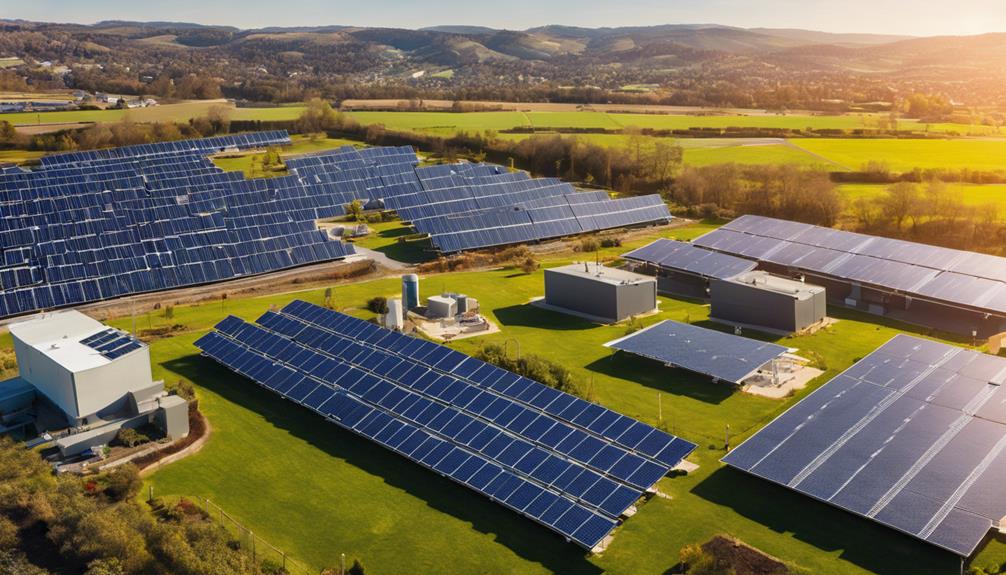
Solar energy efficiency is a crucial aspect of harnessing the power of the sun to generate electricity. As the world increasingly turns to renewable energy sources, understanding how to maximize solar energy efficiency becomes essential for homeowners, businesses, and policymakers alike. In this comprehensive blog post, we will delve into various facets of solar energy efficiency, including its importance, how it works, factors affecting it, and the latest advancements in solar technology.
The Importance of Solar Energy Efficiency
Solar energy efficiency refers to the ability of solar panels to convert sunlight into usable electricity. Higher efficiency means more energy generation from the same amount of sunlight, making it a critical factor in the overall effectiveness of solar power systems. As global energy demands rise and concerns about climate change grow, enhancing solar energy efficiency can play a pivotal role in reducing our reliance on fossil fuels and lowering greenhouse gas emissions. By investing in efficient solar technology, we can optimize our energy consumption, lower electricity bills, and contribute to a sustainable future.
How Solar Energy Efficiency Works
Solar panels consist of photovoltaic (PV) cells that harness sunlight and convert it into electricity. The efficiency of these cells is determined by their ability to absorb sunlight and convert it into electrical energy. The most common types of solar cells include monocrystalline, polycrystalline, and thin-film, each with varying levels of efficiency. For instance, monocrystalline solar panels are known for their high efficiency, often exceeding 20%, while polycrystalline panels typically range between 15% and 20%. Understanding how these technologies work and their efficiency ratings can help consumers make informed decisions when selecting solar energy systems for their homes or businesses.
Factors Affecting Solar Energy Efficiency
Several factors can influence the efficiency of solar energy systems. These include the angle and orientation of the solar panels, shading from nearby structures or trees, and the temperature of the environment. Ideally, solar panels should be installed at an angle that maximizes their exposure to sunlight throughout the day. Additionally, excessive heat can decrease the efficiency of solar panels, making it essential to consider local climate conditions when designing a solar energy system. Regular maintenance, such as cleaning the panels and ensuring they are free from debris, can also enhance their efficiency.
Advancements in Solar Technology
The field of solar technology is constantly evolving, with ongoing research and development aimed at improving solar energy efficiency. Innovations such as bifacial solar panels, which capture sunlight from both sides, and solar tracking systems, which adjust the angle of the panels to follow the sun’s path, are becoming increasingly popular. Additionally, researchers are exploring new materials, like perovskite solar cells, which have shown promise in achieving higher efficiency rates at a lower cost. Staying informed about these advancements can help consumers and businesses make strategic decisions about their solar investments.
The Role of Energy Storage in Solar Efficiency
Energy storage systems, such as batteries, play a significant role in enhancing solar energy efficiency. By storing excess energy generated during peak sunlight hours, these systems allow users to harness solar power even when the sun isn’t shining. This capability is particularly valuable for homeowners and businesses that want to maximize their energy independence and reduce reliance on the grid. As battery technology continues to improve, the cost of energy storage is expected to decrease, making it more accessible for consumers and further enhancing the overall efficiency of solar energy systems.
Solar Energy Efficiency and Government Incentives
Government incentives and regulations can significantly impact the adoption of solar energy systems and their efficiency. Many countries offer tax credits, rebates, and other financial incentives to encourage the installation of solar panels. These programs often aim to promote renewable energy use and reduce carbon emissions. Understanding the available incentives can help homeowners and businesses offset the initial investment in solar technology, making it more financially feasible. By leveraging these incentives, consumers can invest in higher-efficiency systems that may offer better long-term savings and environmental benefits.
Environmental Benefits of Enhanced Solar Energy Efficiency
Increasing solar energy efficiency not only benefits individual consumers but also has broader environmental implications. By maximizing energy output from renewable sources, we can reduce our dependency on fossil fuels, which are a primary contributor to climate change. Enhanced solar efficiency can lead to a decrease in greenhouse gas emissions and a cleaner, more sustainable energy landscape. Furthermore, as solar energy becomes more efficient, it can drive down costs, making it a more viable option for a wider audience. The transition to clean energy sources is vital for protecting our planet and ensuring a sustainable future for generations to come.
Conclusion: Embracing Solar Energy Efficiency for a Sustainable Future
In conclusion, solar energy efficiency is a fundamental component of the transition to renewable energy sources. By understanding its importance, the factors that influence it, and the latest advancements in technology, consumers can make educated decisions about their solar investments. With the support of government incentives and the integration of energy storage solutions, achieving higher efficiency in solar energy systems is not only feasible but beneficial for both individuals and the environment. As we embrace these technologies and practices, we move closer to a sustainable future powered by clean, renewable energy.
By focusing on solar energy efficiency, we take a significant step toward reducing our carbon footprint, lowering energy costs, and creating a healthier planet for future generations. Whether you are a homeowner, business owner, or policy advocate, prioritizing solar energy efficiency is a choice that can lead to meaningful change.





